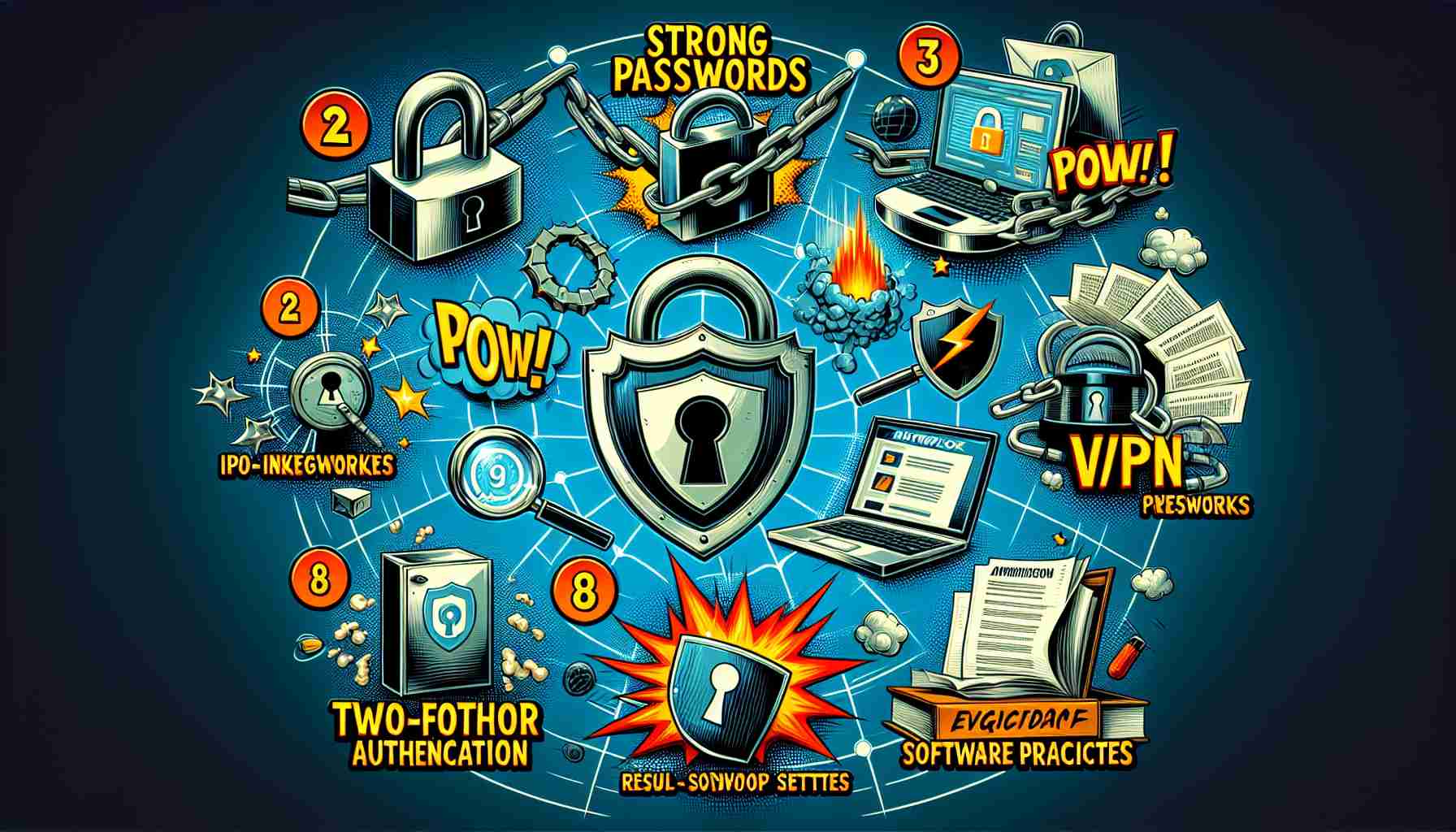10 Tips for Enhancing Online Security

In today’s digital age, the internet offers countless opportunities for convenience and connectivity, but it also poses significant risks to our online safety. One crucial aspect of navigating the online landscape is bolstering our cybersecurity measures to protect sensitive information from potential threats.
Here are 10 practical steps you can take to enhance your online security:
1. Utilize Strong Passwords: Create unique and complex passwords for each account to serve as your initial defense line against unauthorized access.
2. Employ a Password Manager: Consider using a reliable password manager to generate and securely store your passwords.
3. Activate Multifactor Authentication: Implement an extra layer of security by requiring additional verification steps, such as codes sent to your phone, after entering your password.
4. Stay Vigilant Against Phishing: Be cautious of suspicious emails or messages and promptly report them to prevent falling victim to phishing scams.
5. Regularly Update Software: Keep your operating systems and applications up to date to ensure you have the latest security patches.
6. Educate Yourself: Stay informed about emerging cybersecurity threats and best practices for online safety.
7. Secure Your Devices: Implement security measures on all your devices, including computers, smartphones, and tablets.
8. Enable Firewalls: Activate firewalls on your devices to monitor and control incoming and outgoing network traffic.
9. Back Up Important Data: Regularly back up your important files and data to prevent data loss in case of a cyber attack.
10. Secure Your Wi-Fi Network: Set up strong passwords and encryption protocols for your home Wi-Fi network to prevent unauthorized access.
By following these proactive steps, you can fortify your online defenses and navigate the digital world with greater peace of mind. Remember, cybersecurity is a shared responsibility, and taking these measures is crucial in safeguarding your online presence.
FAQ Section:
1. What is the importance of cybersecurity?
Cybersecurity is essential for protecting sensitive information and preventing unauthorized access to your online accounts and devices.
2. How can I enhance my online security?
You can enhance your online security by utilizing strong passwords, activating multifactor authentication, staying vigilant against phishing, updating software regularly, educating yourself on cybersecurity best practices, securing your devices, enabling firewalls, backing up important data, and securing your Wi-Fi network.
3. What is multifactor authentication?
Multifactor authentication is an additional layer of security that requires users to provide more than one form of verification (such as a password and a code sent to their phone) to access an account or system.
4. Why is updating software important for cybersecurity?
Updating software regularly helps to ensure that you have the latest security patches and protections against known vulnerabilities that cyber attackers may exploit.
5. What are phishing scams?
Phishing scams are fraudulent attempts to obtain sensitive information, such as login credentials or financial details, by posing as a trustworthy entity in electronic communication.
Definitions:
– Cybersecurity: The practice of protecting systems, networks, and data from digital attacks.
– Phishing: A type of cyber attack where attackers send fraudulent communications to trick individuals into revealing sensitive information.
Suggested Related Links:
– Cybersecurity Best Practices
– Password Management Tips
– Mobile Device Security
– Wi-Fi Security Tips





